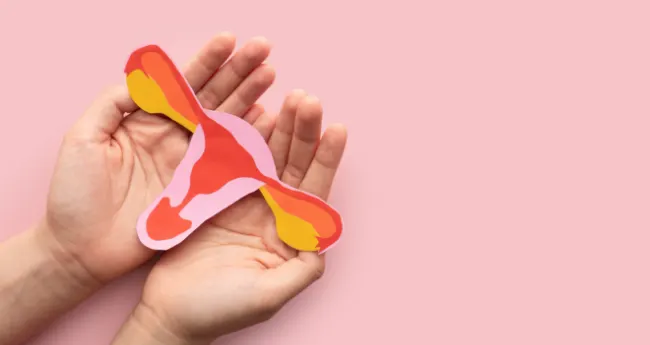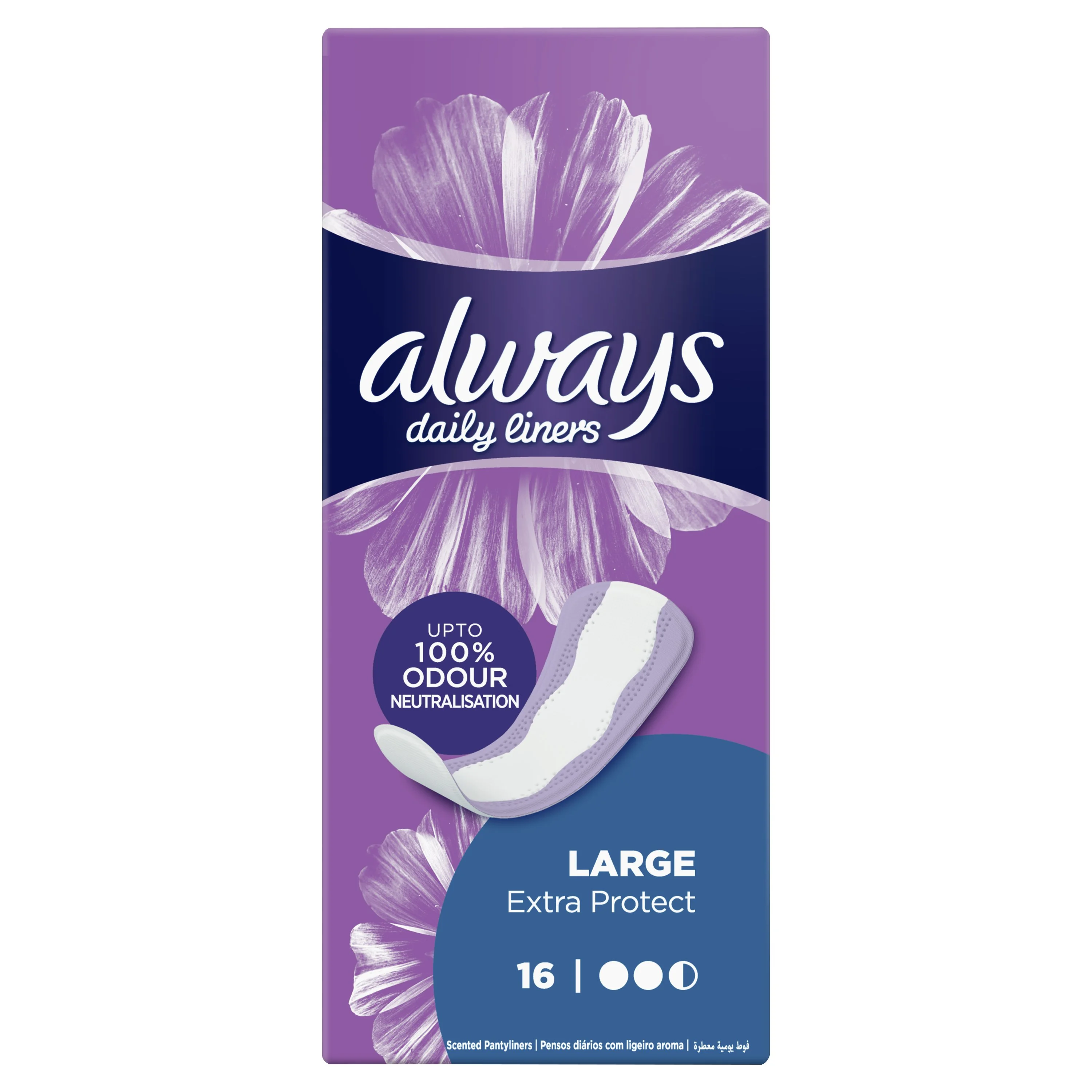Period Guide: Tips to Maintain Menstrual Hygiene

Maintaining menstrual hygiene is an important aspect of every woman’s period routine. It is particularly essential to take utmost care to protect menstrual health when you get your period as your body is more susceptible to infections during this time.
Many might wonder, ‘How to clean the vagina after periods?’ Or is there even a specific way to clean? In this article, let’s understand why maintaining menstrual hygiene is essential to staying healthy, and how to stay clean and fresh during your period with our expert tips.
Importance of menstrual hygiene and health
Improper or lack of menstrual hygiene can have cascading effects on your overall reproductive health. Poor menstrual hygiene can lead to serious health risks like reproductive and urinary tract infections. These could lead to future infertility and birth complications.
Not having access to menstrual products or neglecting to wash hands after changing menstrual products can spread infections, such as hepatitis B and thrush. Additionally, not cleaning your vagina properly during your period is like providing germs and bacteria an environment to thrive. This will only make you prone to vaginal infections.
Although the vagina is a self-cleansing organ, it does need some help in maintaining menstrual hygiene, especially during your period.
Can you bathe while on your period?
In many cultures, bathing or washing your hair while you’re on your period is considered taboo. However, scientifically, you can safely bathe when you’re menstruating. Typically, bathing under running water is perfectly fine.
If you have any reproductive health issues, you may want to consult your doctor before soaking in a tub. And if you’re on your period and you choose to bathe in a tub, the below steps will help maintain period hygiene:
- Make sure that the bathtub is clean. That’s because your immune system is more susceptible to infection during your period, so ensure the tub is clean and sanitized.
- Consider using warm water - as hot water may provoke heavier bleeding.
- Rinse yourself under the shower before sitting in the tub and make sure to wash your genitals thoroughly
How to clean your vagina
When it comes to cleaning your vagina, there are a few guidelines one must know of and follow. They are:
1. Wash your hands before cleaning
Make sure that your hands are clean to avoid transmitting any bacteria to the body via your hands. And if you’re on your period, it is possible that the sanitary product you use has come in contact with your anal area. By touching the sanitary product, your hands can get contaminated by intestinal bacteria which could get transferred when you clean yourself.2. Wash your vagina from front to back
When washing your vagina, start by washing your labia and then proceed to the perineum (the tiny patch of sensitive skin between your vaginal opening and anus), and then the anus. This makes it less likely for bacteria and traces of faecal matter to enter the vaginal area.3. Rinse your vagina twice a day when menstruating
Because there is blood all the time when you’re menstruating, it offers a conducive environment for bacteria to thrive. Which is why doctors recommend rinsing the genital area at least twice a day, preferable in the morning and evening, while on your period. You can also rinse more frequently if you’re comfortable.
Best period tips to maintain menstrual hygiene
Here are some menstrual hygiene tips to keep in mind when you’re on your period:
1. Frequently change your sanitary pad or tampon
Not changing your sanitary pad from time to time will result in you wearing a damp pad with bacteria from the sweat. These bacteria can multiply and lead to urinary tract infections, vaginal infections and skin rashes. That is why it is important to change your sanitary pad in a timely manner to avoid leakage. The frequency of changing your pads will depend on your menstrual flow. The same applies if you use tampons.
Make sure you don’t leave a tampon in for a long time. It could lead to toxic shock syndrome (TSS), which is a serious medical condition caused by a bacterial infection. Changing pads and tampons regularly will keep infection and irritation at bay.
When it comes to sanitary pads, make sure that you use only the best quality sanitary pads like Always pads. They are thoughtfully designed to provide ultimate ease, comfort, and protection. They are also available across various sizes and for different body types.
For those who are comfortable with tampons, Always’ Tampax Compak tampons are a great fit. These come with a smooth, compact applicator for discretion, and a built-in protective skirt to help prevent leakage for up to eight hours.
2. Wash your hands before and after using menstrual products
Always wash your hands thoroughly before using any menstrual product. This will help in preventing the transfer of bacteria to your body. It’s also necessary that you wash your hands after you have changed your pad or tampon so as to avoid the transfer of bacteria to anyone else.
3. Safe and proper disposal of sanitary pad or tampon
Any used sanitary product needs to be disposed properly and safely after use. Wrapping it before throwing it in the bin will prevent spreading bacteria. Once disposed, wash your hands thoroughly with soap and water.
4. Night-time use of menstrual products
A pad typically soaks blood, sweat, and sebum when you wear it. This creates a breeding ground for bacteria, which is why it is recommended to change your pads frequently. How often you must change your pad mostly depends on your menstrual flow. So, change when you feel too moist or wet. Most women are worried about leakages at night. To avoid it, change your pad just before you get in bed.
Consider using a thick, higher absorbency sanitary pad for the night so you sleep without a worry. Try Always’ Night Dreamzzz Pads for all round protection all night. You can skip the worry of midnight leakage as the pad is designed to have a wider back that offers better coverage. Its deep channels minimise the risk of leakage, while the clean and dry topsheet keeps you comfortable all night.
For tampon users, it’s necessary that you don’t leave a tampon inserted for more than eight hours. It could result in toxic shock syndrome (TSS), a severe infection. This is a rare condition caused when bacteria enters the body and releases harmful toxins into the bloodstream. To prevent this, it is recommended that you wear a new tampon just before going to bed and then change it immediately after you wake up. This will ensure that you don't breach the eight-hour deadline.
5. Never flush a menstrual product
To dispose a tampon or pad, always wrap and throw it in the bin. Never flush it as it can clog a pipe or sewer and spread the bacteria.

Other intimate hygiene tips to follow daily:
1. Wear comfortable and light clothing
Consider wearing comfortable and loose undergarments, preferably cotton. A breathable material like cotton facilitates air flow, keeping the skin in your genital area dry. Avoid extremely fitted clothes as it contributes to sweat which makes it a breeding ground for bacteria. Instead, wear clothes that provide ease of movement.
2. Keep the vaginal area dry and clean
Keeping your intimate are dry and clean will help prevent formation of bacteria and most importantly, keep you comfortable. Rinse yourself with water and wipe from front to back to avoid transmission of bacteria from the anus into the vaginal opening.
If you’re experiencing vaginal discharge and want to stay dry, consider using panty liners. They are great at absorbing discharge so you don’t feel any uncomfortable wetness. Try Always’ Extra Protect panty liners which is designed for high flexibility. Its extra long size offers extra coverage, while its breathable and feminine design offers trusted dryness with long-lasting everyday freshness. This ensures that you feel dry and great, always.

3. Avoid douching
The vagina is a well-known self-cleansing organ and doesn’t require additional cleaning on the inside. Douching is a process that involves the flushing of water mixed with some other substances inside the vagina. This is done to clean the vagina from the inside and control any odour. However, medical experts strongly disapprove of douching as it washes away the healthy vaginal flora thereby inviting vaginal infections.
4. Avoid using chemical products
Using any product that has chemicals in it to clean your vagina will end up doing more harm than good. Feminine hygiene products such as deodorants and sprays can lead to vaginitis, an infection. Instead, consider using plain warm water and a mild soap if you want to rinse your vaginal area.
Takeaway
Practicing steps to maintain menstrual hygiene will go a long way in ensuring your menstrual health is in top shape. Along with period hygiene, it is also crucial to use good quality menstrual products to manage your periods.
Stay well prepared for your next period by tracking it on Always Period Calculator
Try our ovulation date calculator to track your days and plan your fertility window.
FAQs
1. Why is menstrual hygiene important?
It is important to maintain menstrual hygiene because the lack of it can lead to serious health risks like reproductive and urinary tract infections. Not washing hands after changing menstrual products, not cleaning your vagina properly etc. can spread infections as it provides a breeding ground for germs and bacteria.
2. How do you manage menstrual hygiene?
Some of the basic steps for maintaining menstrual health is changing your pads in a timely manner, avoiding douching, washing your hands thoroughly before and after changing your pad or tampon, and washing yourself from the front to the back to prevent transfer of bacteria.
3. How many pads per day is normal?
It is generally advised to change your pad after every four to six hours to maintain hygiene during menstruation. If you experience heavy bleeding, you may need to change more frequently.
Disclaimer:
Please note the date of last review or update on all articles. No content on this site, regardless of date, should ever be used as a substitute for direct medical advice, diagnosis or treatment from your doctor or other qualified clinician. Always is committed to ensuring that all of our products meet rigorous safety standards; Always pads prioritize safety, protection and comfort of its consumers.




